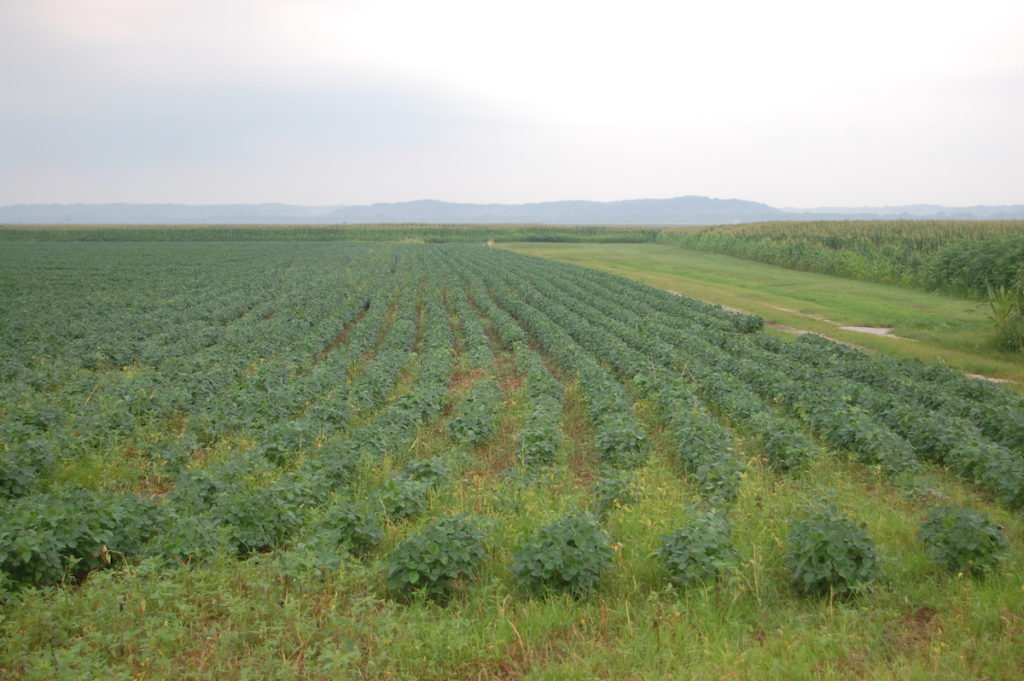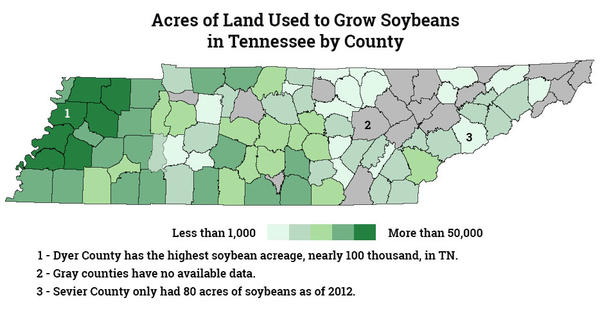
The U.S.-China trade war is going to have a drastic impact on Tennessee’s agricultural exports, worth $1.4 billion as of 2016.
Specifically, soybean farmers will be hit especially hard. Tennessee’s farms exported nearly half a billion dollars worth of soybeans, mostly to China.
Even the threat of a trade war was enough to send national soybean prices to a
nine-year-low in May
. While prices have slightly recovered, farmers are preparing for worse.
“We’re not making a lot of money, even at the margins that we have,” West Tennessee farmer Ben Moore said. “So whenever you take another dollar or so off the price of soybeans, it makes it pretty tough.”

The retaliatory tariffs could have a lasting impact even if they get reversed as China develops infrastructure in Brazil and Argentina to harvest soybeans.
“Brazilian soybean exporters will benefit from these retaliatory tariffs just due to the fact that these tariffs will make U.S. soybeans relatively less competitive,” Agriculture and Resource Economics Professor Andrew Muhammad said.
Muhammad worked on
a report about the potential impact of the tariffs. His research showed that “for every dollar we lose in exports to China, the Brazilians gain a dollar.”
The soybean tariffs could have a ripple effect on the rest of the economy.
“It’s a much larger issue than the farmer himself,” Tennessee Commissioner of Agriculture Jai Templeton said. “It’s going to be suppliers, lending institutions, or those who have bought farmland over the years from an investment perspective. It can have a negative implication for them as well.”

Farmers will be hit from both sides. The American steel and aluminum tariffs will make equipment cost more while the Chinese soybean tariffs will make harvests less profitable.
Still, Moore doesn’t blame the president. He blames China for going after farmers.
“The American farmer is a scapegoat right now,” Moore said. “I just hope we can get this trade war worked out and we can go back to having a good trade relationship with all countries.”


